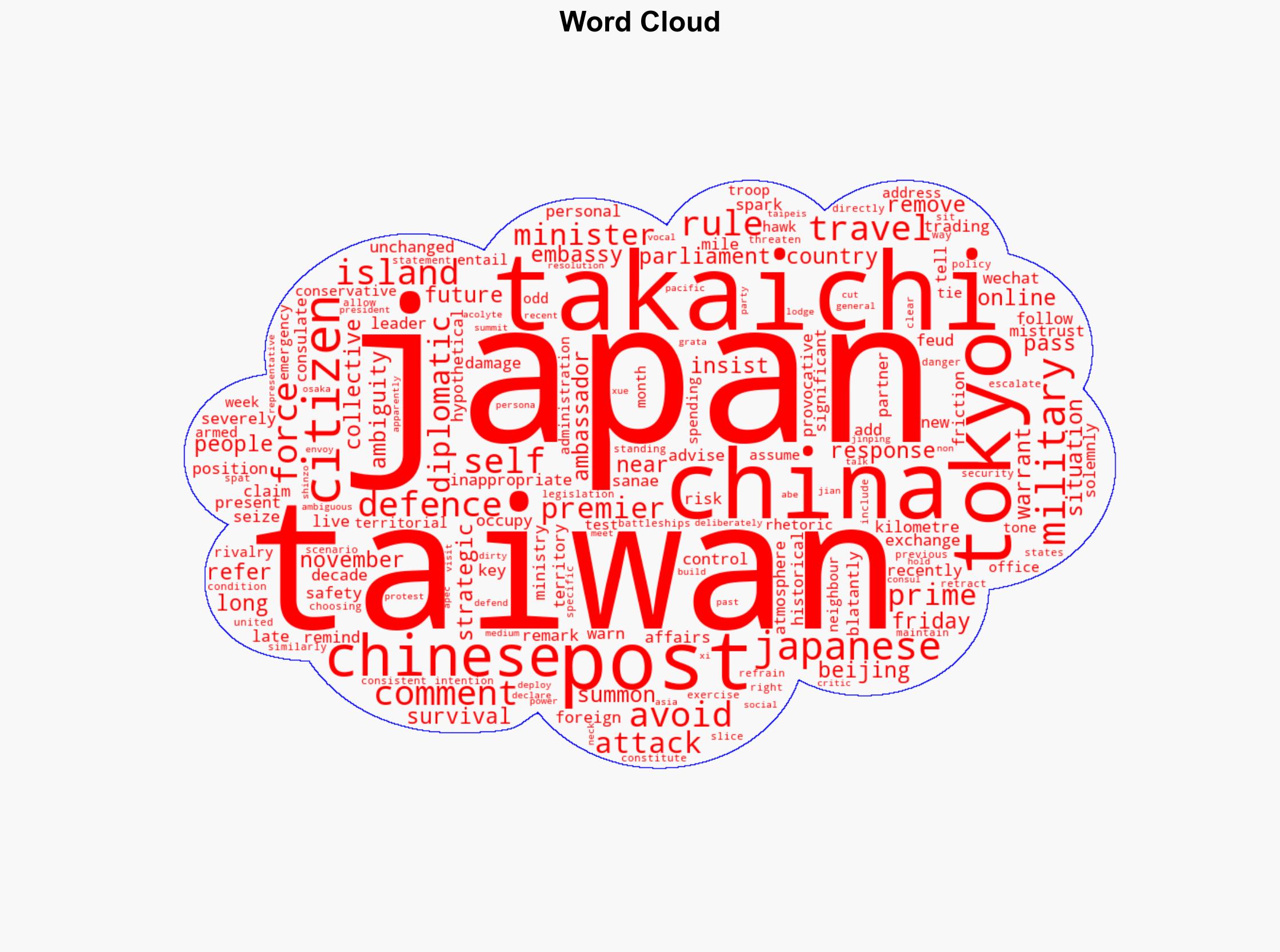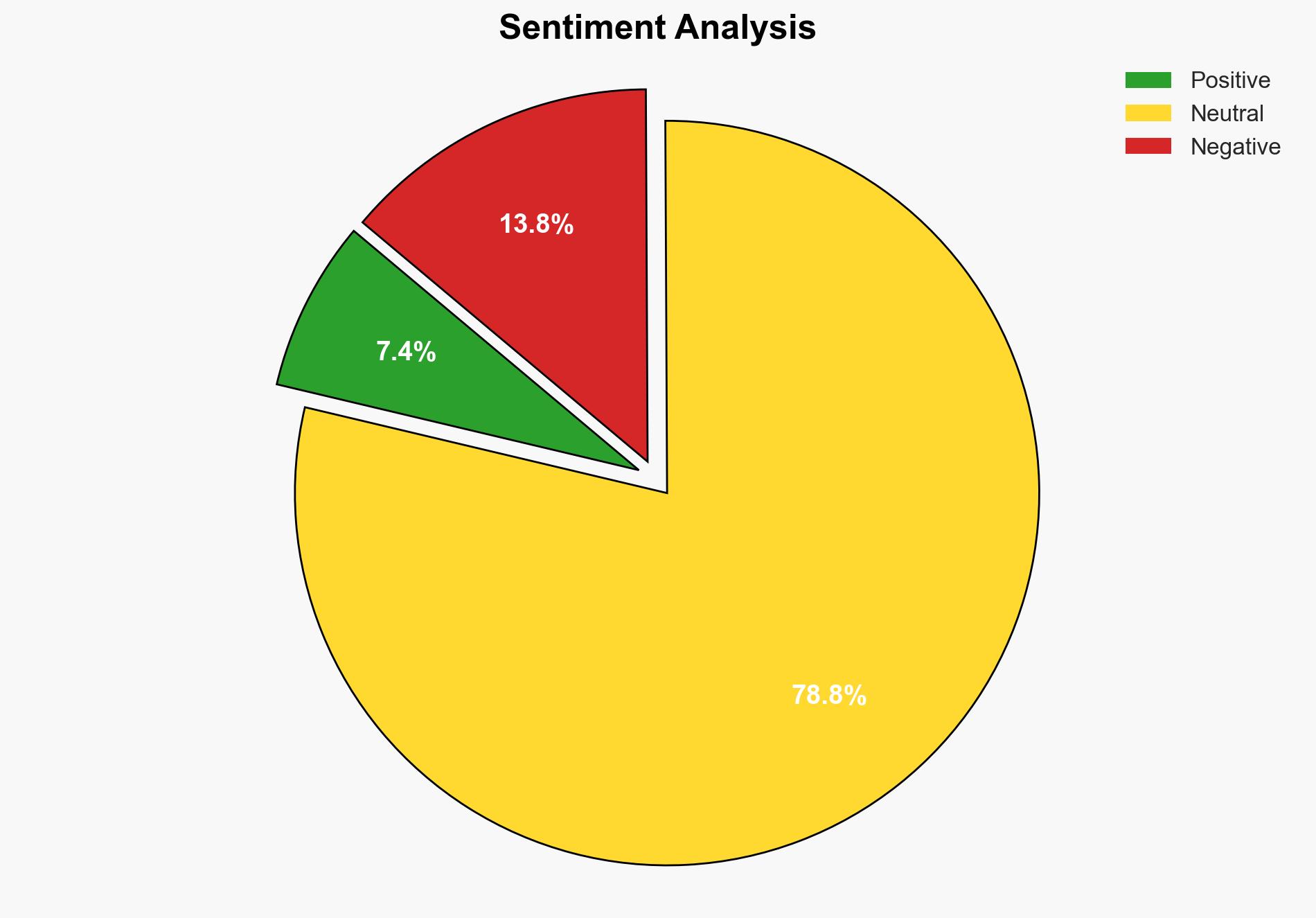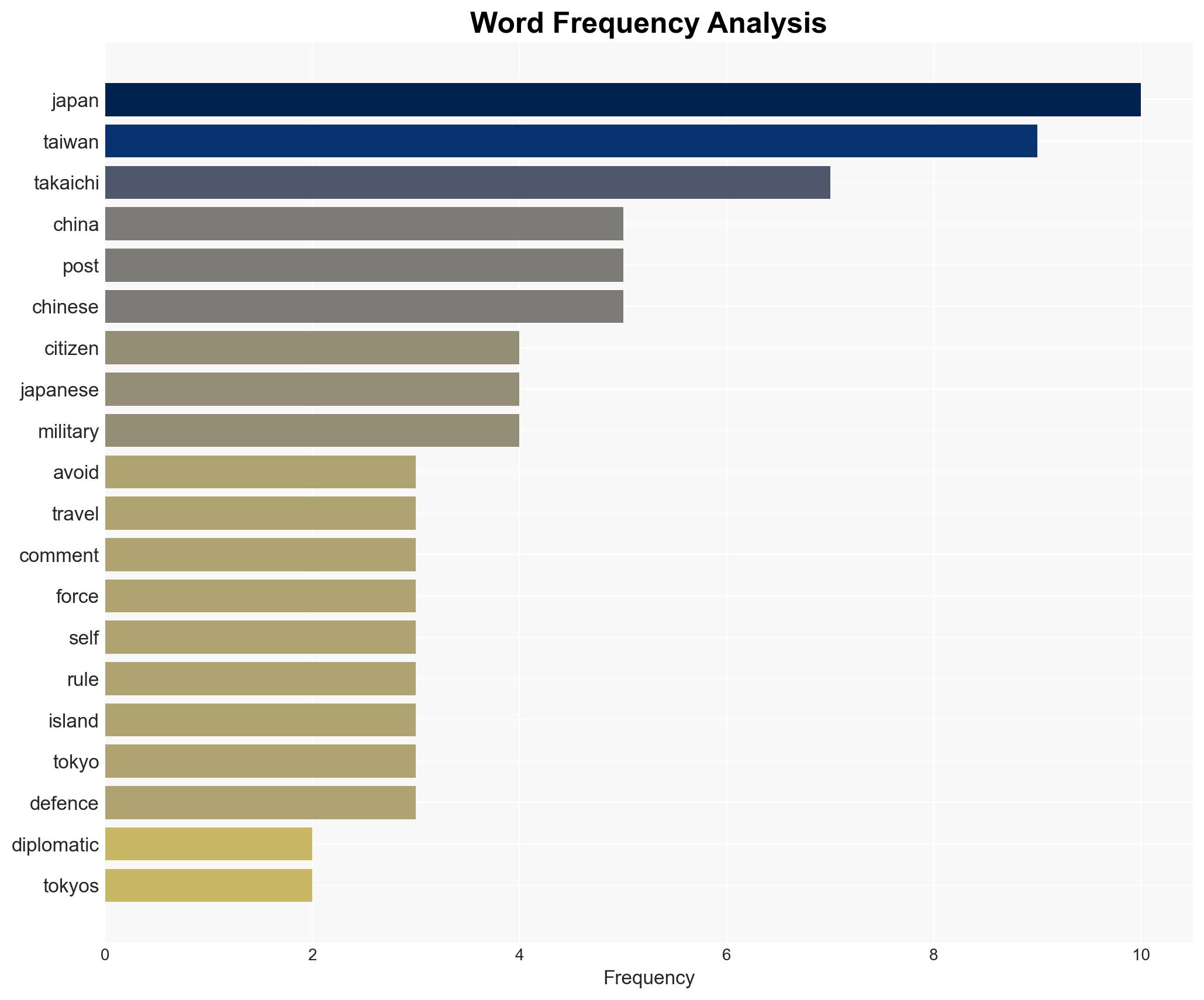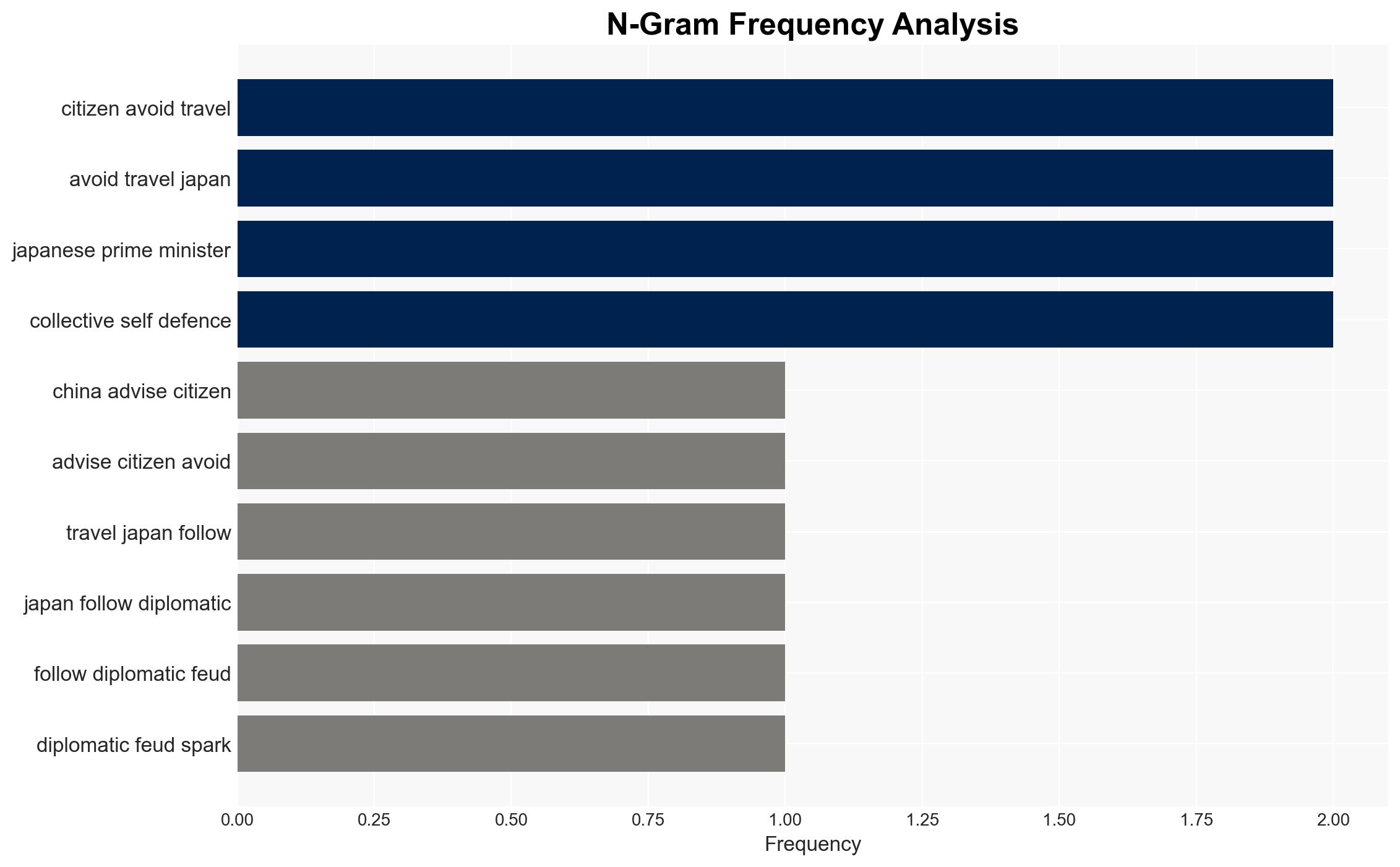China tells citizens to avoid Japan travel as Taiwan row grows – Digital Journal
Published on: 2025-11-15
AI-powered OSINT brief from verified open sources. Automated NLP signal extraction with human verification. See our Methodology and Why WorldWideWatchers.
Intelligence Report: China tells citizens to avoid Japan travel as Taiwan row grows – Digital Journal
1. BLUF (Bottom Line Up Front)
With a moderate confidence level, it is assessed that China’s advisory for its citizens to avoid travel to Japan is primarily a diplomatic maneuver aimed at exerting pressure on Japan amidst escalating tensions over Taiwan. The most supported hypothesis is that China seeks to leverage economic and social pressures to influence Japan’s stance on Taiwan. Recommended actions include monitoring diplomatic communications, analyzing economic impacts, and preparing for potential escalation in regional tensions.
2. Competing Hypotheses
Hypothesis 1: China’s travel advisory is a strategic diplomatic response intended to apply pressure on Japan to retract or soften its stance on Taiwan. This hypothesis is supported by China’s historical use of economic and social levers in diplomatic disputes and the timing of the advisory following provocative statements by Japan’s Prime Minister.
Hypothesis 2: The advisory is a genuine concern for the safety of Chinese citizens in Japan due to potential backlash from heightened diplomatic tensions. This hypothesis is less supported, as there is limited evidence of immediate threats to Chinese citizens’ safety in Japan.
3. Key Assumptions and Red Flags
Assumptions: It is assumed that China perceives Japan’s statements as a significant threat to its territorial claims over Taiwan. It is also assumed that Japan will maintain its current stance despite China’s pressure.
Red Flags: The potential for miscommunication or miscalculation leading to unintended escalation. The use of social media and public statements as tools for diplomatic signaling could obscure true intentions.
4. Implications and Strategic Risks
The diplomatic spat could lead to broader regional instability, affecting political alliances and economic partnerships. There is a risk of escalation into cyber or informational warfare, as both nations might leverage these domains to assert their positions. Economic implications could arise from reduced tourism and trade disruptions.
5. Recommendations and Outlook
- Monitor diplomatic channels for signs of de-escalation or further provocations.
- Analyze economic data for impacts on trade and tourism between China and Japan.
- Prepare contingency plans for potential cyber threats targeting critical infrastructure.
- Best-case scenario: Diplomatic tensions de-escalate through dialogue, with both nations reaffirming commitment to regional stability.
- Worst-case scenario: Escalation into economic sanctions or military posturing, leading to regional instability.
- Most-likely scenario: Continued diplomatic tensions with periodic escalations, but no significant change in the status quo.
6. Key Individuals and Entities
Sanae Takaichi (Japanese Prime Minister), Xue Jian (Chinese Consul General in Osaka), Xi Jinping (Chinese President).
7. Thematic Tags
Regional Focus, Regional Focus: East Asia, China-Japan Relations, Taiwan Strait Tensions
Structured Analytic Techniques Applied
- Causal Layered Analysis (CLA): Analyze events across surface happenings, systems, worldviews, and myths.
- Cross-Impact Simulation: Model ripple effects across neighboring states, conflicts, or economic dependencies.
- Scenario Generation: Explore divergent futures under varying assumptions to identify plausible paths.
- Bayesian Scenario Modeling: Forecast futures under uncertainty via probabilistic logic.
Explore more:
Regional Focus Briefs ·
Daily Summary ·
Support us
·





